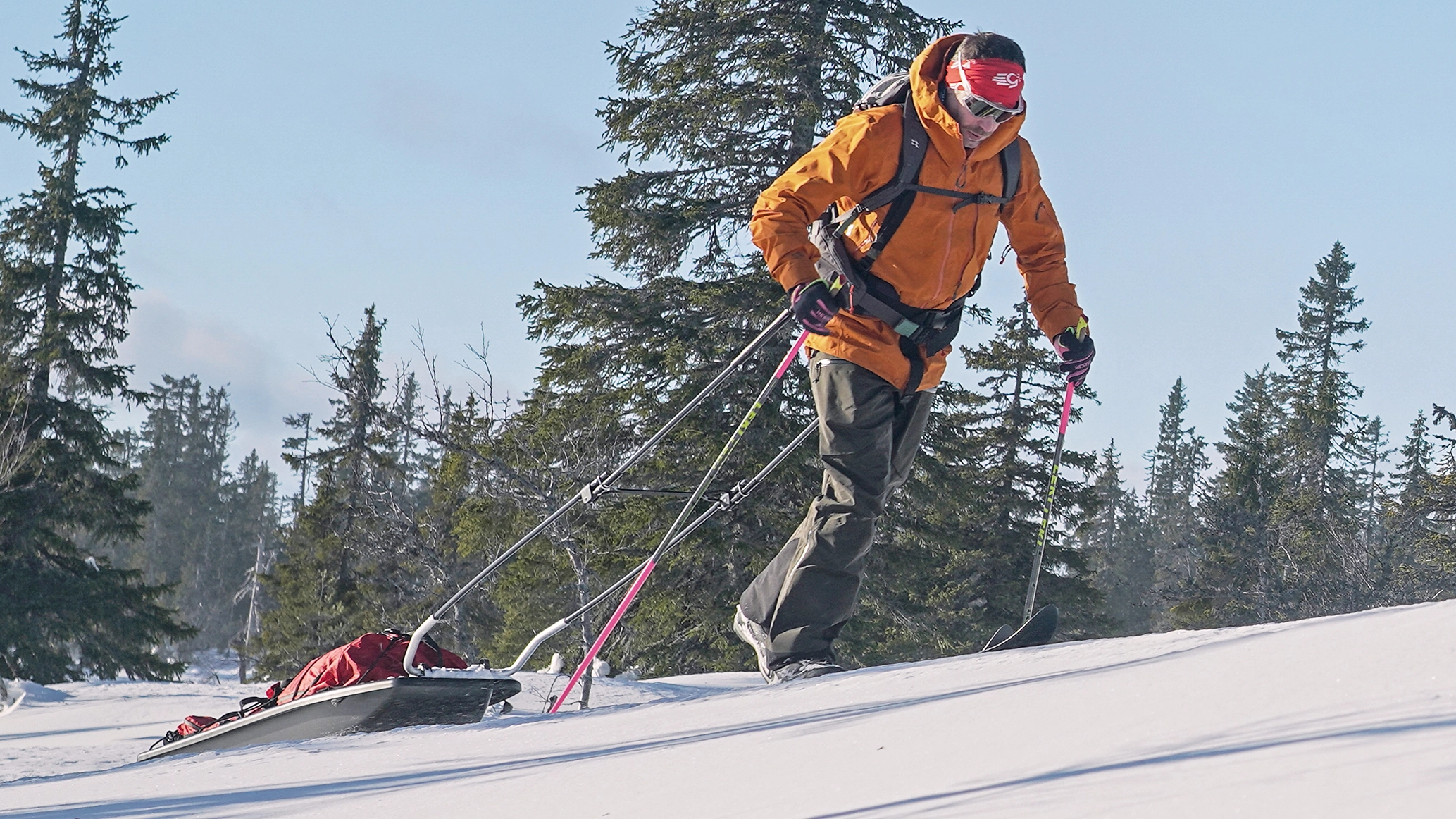“I first got involved in cross-country skiing after my injury. I had a brain bleed while serving in the British Army, which left me with left-sided paralysis from the neck down.
“Before that, I was a keen ultramarathon runner something I couldn't return to, even 12 months after the injury. Skiing was the closest thing I could find to ultramarathon running.
“I reached out to the Armed Forces Para-Snowsport Team, whose mission is to support rehabilitation through snow sports. Fortunately, they had just started offering cross-country skiing. Two months later, I was in Austria on skis and the rest is history.
It's my escape
“I love the sense of freedom skiing gives me. I enjoy the ability to strap on a pair of skis and be out there on my own, self-sufficient. I like exploring - it's something that allows me to escape the day-to-day.
“In 2025, I completed a solo, unsupported expedition to the South Pole, and part of that journey was about deliberately challenging the disadvantages that come with my disability.
“Antarctica is a very unique place and, as someone who spends a lot of time in snowy environments, it was unlike anything I'd ever seen. There's something extremely peculiar about knowing that you're the only bastion of civilisation for hundreds of kilometres. I was eating about 6,000 calories a day and burning 8,000 a day during the trip.
“I enjoy skiing expeditions because of the emotional range you experience. On a daily basis, most people go between, say, a three and a seven, and the needle of emotion doesn't shift much outside of births, deaths and marriages. Whereas, if you wake up in Antarctica, that's either an eight or a two, depending on the weather!
Competing in races
“I’ve also represented Great Britain in para Nordic skiing. I did my first race in January 2017 in Ukraine, and I raced in a European Championship in 2020. Representing my country was the gateway to everything I do now.
“I think a lot of people approach things with the assumption it's impossible, but I’d rather ask myself, why not? "The main goal of the South Pole project was to do something that wasn't just for myself... I realised that others can benefit from seeing me take on these challenges and hearing me talk about them.

Helping others
“I’m a sports scientist with an academic background, and I've always been interested in human performance. I studied at Exeter University, where I completed a master's in health and science.
“I spend about 20 per cent of my time on snow and, when I'm not doing that, I focus on coaching and speaking. My job is to break the illusion that you need to be superhuman to achieve these things - the truth couldn't be further from that. I believe everyone has a vast pool of potential within them, and a big part of good performance comes down to the small things, and making sure they all align. Helping others tap into that is a real passion of mine, and I feel fortunate to be able to do it as a career.
“For anyone interested in getting into skiing, I recommend reaching out to facilities around the UK that offer adaptive skiing. Let them know about your impairment and see how they can support you. It's definitely worth doing this before spending a lot of money on going abroad.
“Having said that, I was out in Colorado and they really do facilitate adaptive skiing in a way I have never seen before, which is incredible.
“As for the future, next year a couple of other injured veterans and I are planning to head to the US to run 50 marathons in 50 states in 50 days. We're doing it to help improve the way people manage and maintain their mental health.”
Find more information on Jonny's story and his coaching on the Jonny Huntington website.
How to get involved
- Visit Disability Snowsport UK (DSUK) for adaptive lessons at a network of UK snow centres listed on their website, as well as adaptive snowsport holidays abroad. You can also join a local ski group
- Visit Snowsport Cymru Wales, which offers opportunities for people with disabilities to participate in adaptive snowsport activities
- Visit Snowsport Scotland, to find adaptive snowsport facilities and ski schools
- Visit Snowsport Englandand use the club and facility finder on its website to search places that offer adaptive snowsport





